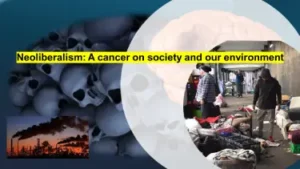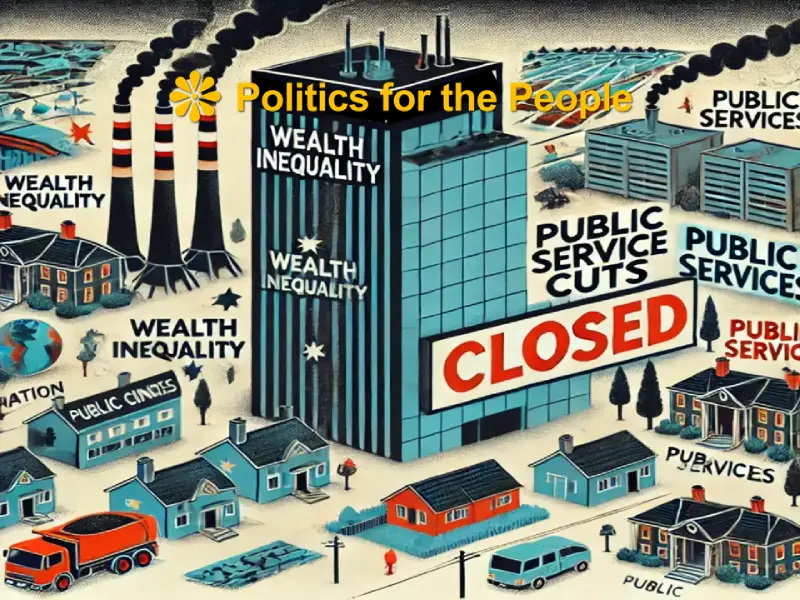Description
Explore how neoliberalism works in Australia and shapes policies, the economy, and society. Learn solutions for a fairer and ethical system.
Introduction
 Neoliberalism, a political and economic ideology rooted in free-market principles, has profoundly influenced Australia’s policies and society since the 1980s. Characterized by privatization, deregulation, and reduced government intervention, neoliberalism promised economic growth and greater freedom. Instead, it has worsened inequality, undermined public services, and concentrated power among corporations and elites.
Neoliberalism, a political and economic ideology rooted in free-market principles, has profoundly influenced Australia’s policies and society since the 1980s. Characterized by privatization, deregulation, and reduced government intervention, neoliberalism promised economic growth and greater freedom. Instead, it has worsened inequality, undermined public services, and concentrated power among corporations and elites.
This article examines how neoliberalism works in Australia by exploring its impacts on key areas of life, its social consequences, and the resistance it faces. Finally, we’ll look at actionable alternatives to this system and propose pathways for creating a fairer and more inclusive Australia.
Neoliberalism’s Impact on Key Areas
The Economy
Neoliberalism has fundamentally reshaped the Australian economy, prioritizing market-driven growth over worker and community welfare.
1. Precarious Employment
– Casual and gig economy jobs have become the norm, offering little stability or benefits.
– Workers face insecure conditions, with approximately 24% of Australians in casual employment.
2. Wage Suppression
– Real wages have stagnated despite rising productivity.
– Economic policies favour corporate profits over wage increases, intensifying wealth inequality.
3. Corporate Power
– Deregulation has allowed corporations to combine power, giving them considerable influence over policymaking.
– Corporate lobbying often outweighs the voices of citizens, skewing policies in favour of business interests.
Public Services
Public services have been systematically eroded under neoliberalism, driven by a belief that privatization and market competition lead to efficiency.
1. Healthcare
– Outsourcing of services has created a two-tiered system where access to quality care depends on wealth.
– Public hospitals face chronic underfunding, while private providers dominate.
2. Education
– Public schools are underfunded compared to private schools, which receive significant government support.
– Education has increasingly become a commodity, with university students burdened by HECS debt.
3. Aged Care and Disability Services
– Privately run aged care facilities prioritize profits, often at the expense of resident welfare.
– The Royal Commission into Aged Care Quality and Safety highlighted systemic neglect in privatized care systems.
Housing
Neoliberalism treats housing as an asset class rather than a basic human right, contributing to:
1. Skyrocketing Prices
– Investor-driven housing markets push home prices and rents beyond the reach of many Australians.
– As of 2024, the average house price in Sydney exceeds $1.4 million.
2. Homelessness Crisis
– Over 122,000 Australians are homeless on any given night.
– Social housing availability is woefully inadequate due to decades of government neglect.
The Environment
Economic policies driven by neoliberalism prioritize short-term profits over long-term environmental sustainability.
1. Resource Extraction
– Industries like coal and gas enjoy government support despite their environmental impact.
– Corporate tax concessions encourage unsustainable practices.
2. Climate Inaction
– The government’s reliance on market-based solutions, such as carbon trading schemes, does not address the urgency of climate change.
Politics and Governance
Neoliberalism fosters an unbalanced political environment where corporate influence overshadows democratic participation.
1. Lobbying and Donations
– Corporate donations to major parties undermine public trust and policy neutrality.
– This influence is clear in sectors like mining, which receives help from favourable regulations.
2. Media Concentration
– A small number of corporations control Australia’s media, shaping public opinion to align with neoliberal ideals.
Social Consequences of Neoliberalism
Neoliberal policies profoundly affect Australian society, deepening inequality and eroding communal values.
Inequality
1. Wealth Disparities
– The top 20% of Australians own 60% of the nation’s wealth, while the bottom 20% own less than 1%.
– Tax cuts favouring high-income earners widen the gap between rich and poor.
2. Education Gaps
– Public school students face fewer opportunities due to chronic underfunding.
– Private schools use government funding to offer superior resources, perpetuating privilege.
Decline in Community and Trust
1. Individualism Over Community
– Neoliberalism’s focus on personal responsibility undermines collective efforts to address societal challenges.
– Public good is deprioritized, reducing investment in community programs.
2. Loss of Public Trust
– People increasingly distrust government institutions perceived as serving corporate interests.
– Voter apathy and disengagement in political processes are on the rise.
Critiques and Resistance to Neoliberalism
Critiques of Neoliberalism
1. Failure to Deliver Prosperity
– The promise of trickle-down economics has proven ineffective, with benefits increasing primarily to elites.
2. Overemphasis on Market Metrics
– Neoliberalism measures success through GDP and market growth, ignoring social and environmental costs.
3. Systemic Risks
– Neoliberal policies worsen financial instability, as seen during the 2008 Global Financial Crisis.
Resistance Movements
1. Grassroots Advocacy
– Movements such as GetUp! and union campaigns challenge neoliberal dominance.
– Protests have successfully opposed some privatization efforts, such as Sydney’s bus system.
2. Environmental Activism
– Groups like Extinction Rebellion and the Greens advocate for policies that prioritize sustainability over profits.
3. Political Alternatives
– Emerging parties and independents push for reforms that challenge the neoliberal status quo.
As disillusionment with the neoliberal status quo grows, alternative political parties and independent representatives are gaining traction in Australia. These groups advocate for reforms that prioritize social equity, environmental sustainability, and robust public services, offering voters meaningful alternatives to the policies of major parties like the Liberal and Labor parties.
1. Australian Greens
– The Greens are Australia’s most prominent progressive political party.
– Their platform challenges neoliberalism by advocating for environmental protection, public housing, free education, and stronger social safety nets.
– The Greens have played a key role in resisting policies that favour corporate interests, such as new fossil fuel projects.
2. Teal Independents
– The Teal Independents are a group of centrist independents focused on climate action, government integrity, and gender equity.
– They gained prominence during the 2022 federal election, winning seats traditionally held by the major parties.
– Their success signals voter frustration with the inaction of established parties on critical issues like climate change and corruption.
3. Socialist Alliance
– The Socialist Alliance is a smaller, left-wing party that directly opposes neoliberalism.
– Their policies focus on wealth redistribution, public ownership of essential services, and stronger workers’ rights.
– Although they have limited electoral success, their activism contributes to the broader critique of neoliberal economics.
4. Australian Progressives
– The Australian Progressives is a minor party that champions policies rooted in equality, transparency, and sustainability.
– They support publicly funded healthcare, education, and housing while opposing privatization and excessive corporate influence.
5. Independent Voices
– High-profile independents like Zali Steggall, Helen Haines, and Andrew Wilkie push for reforms that reflect their communities’ needs.
– Their platforms often include greater accountability in governance, climate action, and improved public services.
Why These Alternatives Matter
These emerging parties and independents challenge the duopoly of the major political parties, which have increasingly aligned with neoliberal policies. By introducing diverse voices into the political discourse, they create pressure for fairer policies and greater accountability.
Alternatives to How Neoliberalism Works in Australia
Policy Proposals
1. Universal Public Services
– Fully fund healthcare, education, housing, and aged care to end inequality in access.
2. Progressive Taxation
– Implement fairer tax policies to ensure corporations and the wealthy contribute adequately.
3. Public Infrastructure Investments
– Build public housing, renewable energy projects, and transport systems that help all Australians.
Using Monetary Sovereignty
Australia’s currency sovereignty provides opportunities to fund transformative public programs without reliance on tax revenue or borrowing.
1. Modern Monetary Theory (MMT)
– MMT explains that as the issuer of its currency, Australia can finance essential services without facing insolvency.
– Policies like a Job Guarantee Program can ensure full employment and economic stability.
2. Debt Misconceptions
– Challenge the false narrative that government debt is equivalent to household debt.
– Highlight how public spending can stimulate economic growth and reduce inequality.
Building a New Framework
1. Well-being Economy
– Shift focus from GDP growth to measures of well-being, sustainability, and social equity.
2. Participatory Democracy
– Enhance citizen involvement in decision-making to counterbalance corporate influence.
Conclusion
Neoliberalism has entrenched inequality, weakened public services, and undermined community values in Australia. By embracing policies rooted in equity, sustainability, and monetary sovereignty, Australia can transition toward a fairer and more compassionate society. Resistance is growing, and the opportunity for systemic change is within reach if citizens demand accountability and action.
Call to Action
If you found this article insightful, explore more about political reform and Australia’s monetary sovereignty on Social Justice in Australia: https://socialjusticeaustralia.com/.
Share this article with your community to help drive the conversation toward a more just and equal society.
Click on our “Reader Feedback” menu. Let us know how our content has inspired you. Submit your testimonial and help shape the conversation today!
Additionally, leave a comment about this article below.

